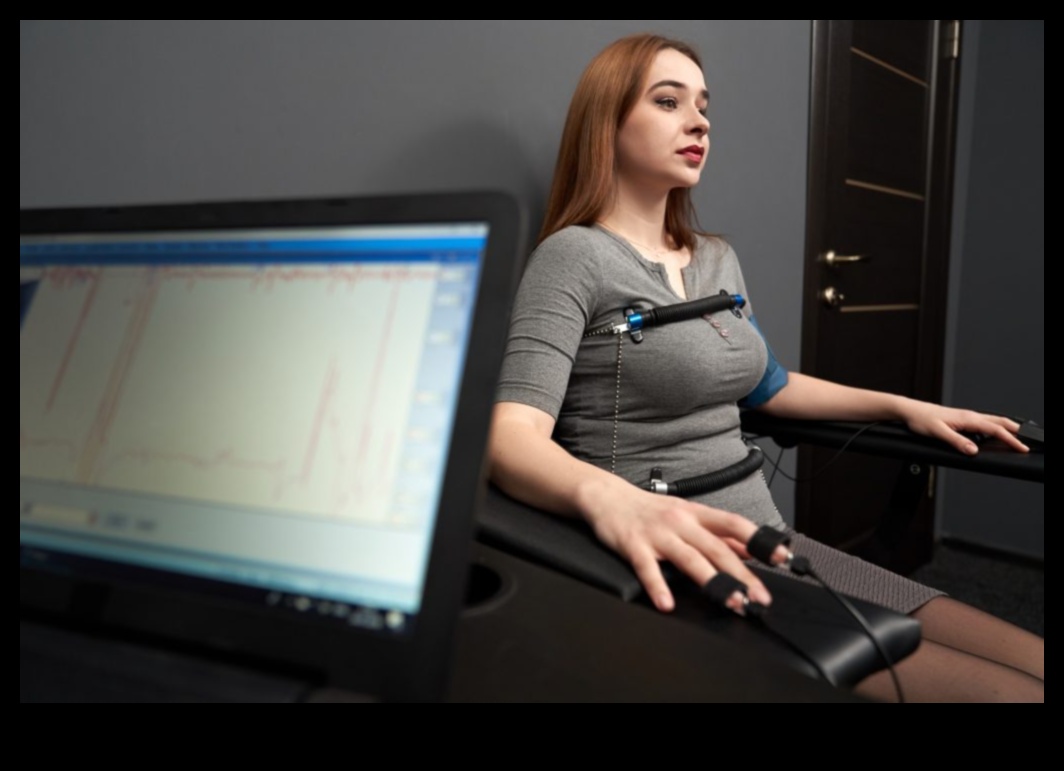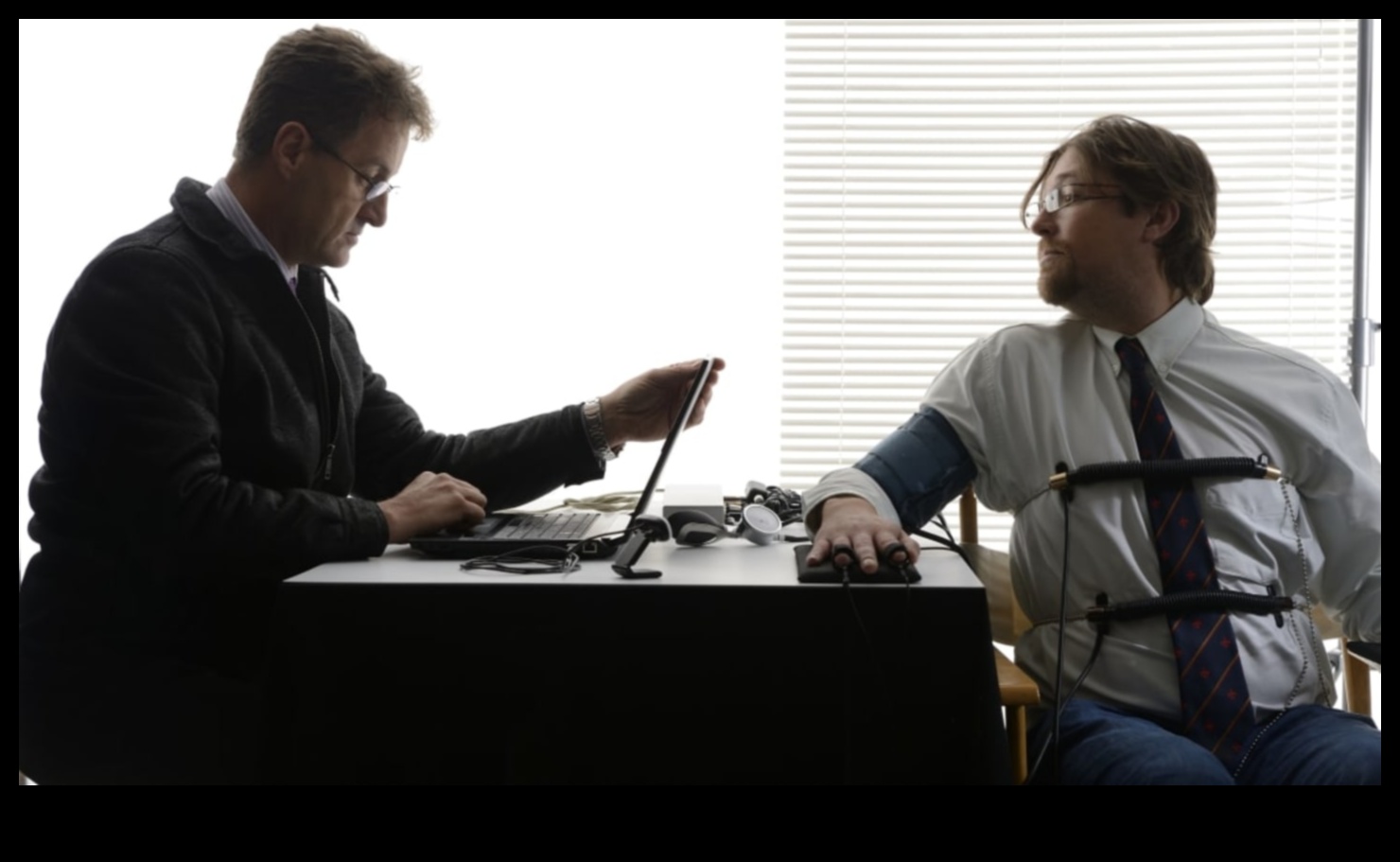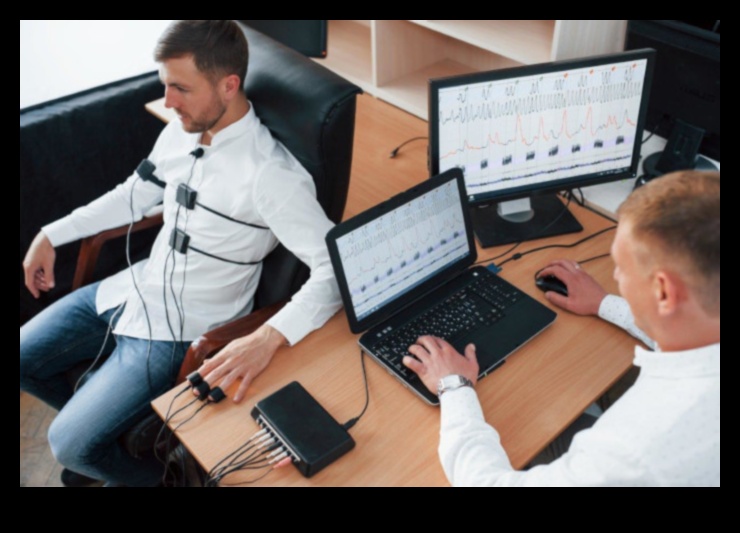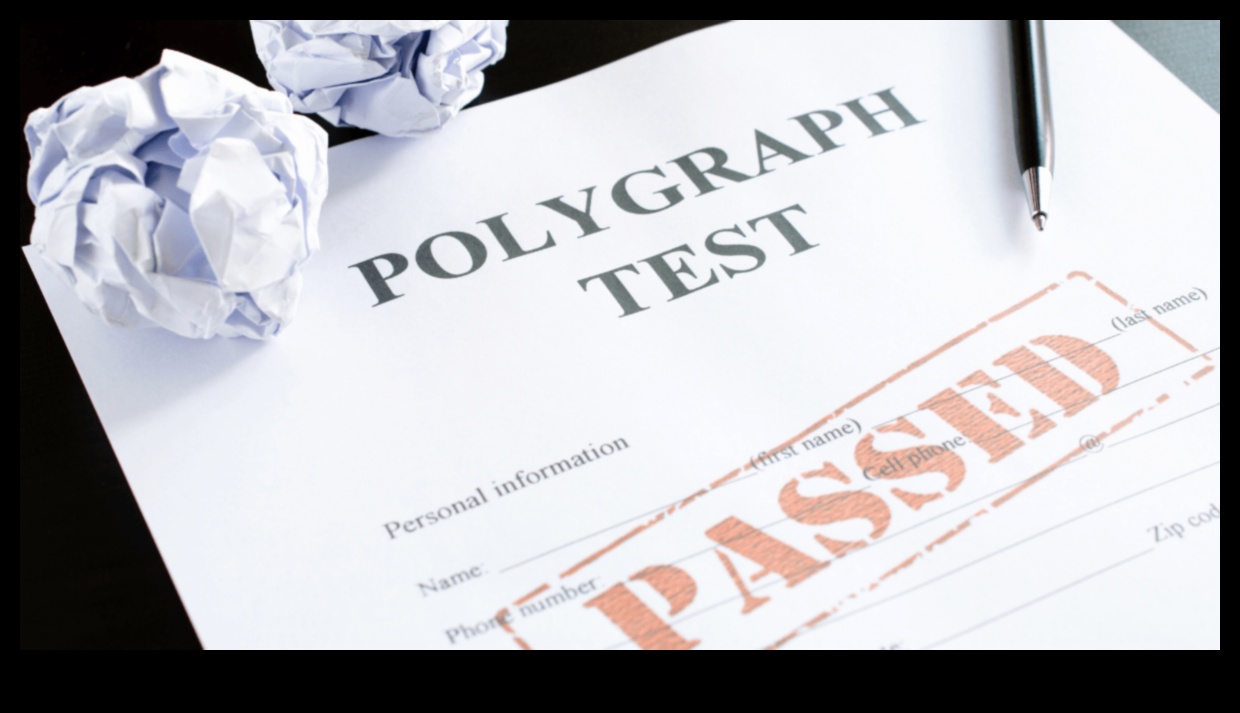
Is a Polygraph Admissible in Court?
Polygraphs, also known as lie detectors, are devices that measure physiological changes in a person’s body in order to detect deception. While polygraphs are often used in law enforcement and criminal investigations, their admissibility in court is a complex and controversial issue.
In this article, we will discuss the legal admissibility of polygraphs in court, including the history of polygraphs, how they work, their accuracy, and the arguments for and against their admissibility.

History of Polygraphs
The first polygraph was invented by a British physician named James Mackenzie in 1877. Mackenzie’s device was called the “cardiograph,” and it measured changes in the heart rate. In 1908, another British physician named John Larson developed a more sophisticated polygraph that measured changes in the heart rate, respiration, and blood pressure.
In the early 1900s, polygraphs were used primarily by law enforcement and criminal investigators. However, their use in the courtroom was limited due to concerns about their accuracy. In 1923, the U.S. Supreme Court ruled in Frye v. United States that the admissibility of scientific evidence in court is based on the “general acceptance” standard. This means that scientific evidence is admissible in court only if it is accepted by a majority of experts in the relevant field.
In the 1960s, the U.S. Supreme Court ruled in a series of cases that polygraph evidence is not admissible in federal court. However, some states have adopted their own rules regarding the admissibility of polygraph evidence. As a result, the admissibility of polygraph evidence in court varies from state to state.
How Polygraphs Work
Polygraphs measure physiological changes in a person’s body that are associated with stress and anxiety. These changes include changes in the heart rate, respiration, blood pressure, and skin conductance.
When a person is lying, they experience a physiological response that is caused by the stress of deception. This response can be detected by a polygraph by measuring the changes in the person’s heart rate, respiration, blood pressure, and skin conductance.
However, it is important to note that polygraphs are not 100% accurate. There are a number of factors that can affect the results of a polygraph test, including the person’s level of anxiety, their ability to control their bodily functions, and the skill of the examiner.

Accuracy of Polygraphs
Studies have shown that polygraphs are generally accurate in detecting deception. However, the accuracy of polygraphs varies depending on the skill of the examiner and the circumstances of the test.
One study, which was conducted by the National Academy of Sciences, found that polygraphs are accurate in detecting deception between 65% and 85% of the time. However, the study also found that polygraphs are less accurate when the person being tested is nervous or anxious, or when the test is conducted in a stressful environment.
Another study, which was conducted by the American Psychological Association, found that polygraphs are accurate in detecting deception between 70% and 90% of the time. However, the study also found that polygraphs are less accurate when the person being tested is experienced in deception, or when the test is conducted for a high-stakes reason.

Admissibility of Polygraphs in Court
As mentioned above, the admissibility of polygraph evidence in court varies from state to state. In general, polygraph evidence is not admissible in federal court. However, some states have adopted their own rules regarding the admissibility of polygraph evidence.
The following are some of the arguments for and against the admissibility of polygraph evidence in court:
- Arguments for the admissibility of polygraph evidence:
- Polygraphs are accurate in detecting deception.
- Polygraphs can help to protect the innocent and convict the guilty.
- Polygraphs can save time and money by eliminating the need for lengthy trials.
- Arguments against the admissibility of polygraph evidence:
- Polygraphs are not 1
Keyword Answer Polygraph A polygraph, also known as a lie detector, is a device used to measure physiological changes in a person’s body while they are being questioned. These changes can include changes in heart rate, breathing rate, and blood pressure. Admissibility The admissibility of polygraphs in court varies from state to state. In some states, polygraphs are admissible as evidence, while in other states they are not. Court Polygraphs can be used in court as evidence to support or refute a witness’s testimony. However, the weight that is given to polygraph evidence varies from case to case. Lie detector Polygraphs are often referred to as lie detectors, but they are not able to detect lies. They can only measure physiological changes in a person’s body. Truthfulness Polygraphs cannot be used to determine whether or not a person is telling the truth. They can only indicate whether or not a person is experiencing physiological changes that are consistent with lying. 
II. History of Polygraphs
Polygraphs have been used for over a century to measure physiological changes in people who are being questioned. The first polygraph was invented in 1921 by John Larson, a medical student at the University of California, Berkeley. Larson’s device was called the “cardiopulmonic psychogalvanometer,” and it measured changes in heart rate, breathing, and sweating.
In the early days of polygraphy, the test was used primarily to detect deception in criminal suspects. However, by the 1950s, polygraphs were also being used in a variety of other settings, such as employment screening, security clearances, and child custody cases.
Today, polygraphs are still used in a variety of settings, but their admissibility in court is still controversial. Some judges believe that polygraphs are too unreliable to be used as evidence, while other judges believe that polygraphs can be helpful in determining whether or not a person is telling the truth.
III. How Polygraphs Work
Polygraphs measure physiological changes in the body that are associated with stress and anxiety. These changes include:
* Increased heart rate
* Increased breathing rate
* Increased sweating
* Increased muscle tensionWhen a person is lying, they may experience these physiological changes because they are feeling stressed or anxious about being caught in a lie. Polygraphs can detect these changes and use them to determine whether or not a person is telling the truth.
However, it is important to note that polygraphs are not 100% accurate. There are a number of factors that can affect the results of a polygraph test, including:
* The person’s level of anxiety
* The person’s ability to control their bodily functions
* The skill of the polygraph examinerFor these reasons, polygraphs should not be used as the sole evidence in a court case. They should only be used in conjunction with other forms of evidence, such as eyewitness testimony or physical evidence.
V. Admissibility of Polygraphs in Court
Polygraphs are not admissible in court as evidence in the United States. The Frye standard, which is the prevailing standard for admitting scientific evidence in federal courts, requires that scientific evidence be “generally accepted” by the relevant scientific community before it can be admitted. Polygraphs have not met this standard, as there is no consensus among scientists about their accuracy.
In addition, the Supreme Court has ruled that the Fifth Amendment privilege against self-incrimination prohibits the government from compelling a person to take a polygraph test. This means that a person cannot be forced to take a polygraph test, even if they are suspected of a crime.
However, there are some exceptions to the general rule that polygraphs are not admissible in court. In some states, polygraphs may be admissible in court if both parties agree to the test. Additionally, polygraphs may be admissible in court if they are used for screening purposes, such as in the hiring process.
Despite the general rule that polygraphs are not admissible in court, they are still used by law enforcement agencies and private businesses. However, it is important to note that the results of a polygraph test are not considered to be legally binding evidence.
V. Admissibility of Polygraphs in CourtThe admissibility of polygraphs in court is a complex and controversial issue. There are a number of factors that courts consider when determining whether or not to admit polygraph evidence, including:
- The reliability of polygraphs
- The scientific validity of polygraphs
- The relevance of polygraph evidence to the case at hand
- The potential for prejudice to the defendant
In general, courts are more likely to admit polygraph evidence in civil cases than in criminal cases. This is because the stakes are lower in civil cases, and the admission of polygraph evidence is less likely to prejudice the defendant.
In criminal cases, courts are more likely to exclude polygraph evidence if the defendant has a right to a jury trial. This is because juries are often unfamiliar with polygraphs and may be swayed by the results of a polygraph test, even if the test is not reliable or scientifically valid.
Despite the challenges associated with admitting polygraph evidence, there are a number of cases in which courts have allowed polygraph evidence to be admitted. In these cases, the courts have found that the polygraph evidence was reliable, relevant, and not unduly prejudicial to the defendant.
Overall, the admissibility of polygraphs in court is a complex and evolving issue. There is no one-size-fits-all answer to the question of whether or not a polygraph is admissible in court. Each case must be considered on its own merits.
VI. Pros and Cons of Polygraphs
There are a number of pros and cons to consider when evaluating the use of polygraphs.
Pros:
- Polygraphs can be used to detect deception in individuals who are being questioned about a crime or other serious matter.
- Polygraphs can help to protect the innocent and ensure that guilty parties are brought to justice.
- Polygraphs can be a valuable tool for law enforcement and other investigators.
Cons:
- Polygraphs are not infallible. They can produce false positives and false negatives.
- Polygraphs are not always reliable, especially when used on individuals who are nervous or anxious.
- Polygraphs can be used to intimidate or coerce individuals into giving false confessions.
Ultimately, the decision of whether or not to use a polygraph is a complex one that should be made on a case-by-case basis.
VII. Alternatives to Polygraphs
There are a number of alternatives to polygraphs that can be used to assess truthfulness. These include:
Interviewing: A skilled interviewer can often get a sense of whether or not someone is being truthful based on their body language, eye contact, and tone of voice.
Behavioral analysis: Behavioral analysts can look for signs of deception, such as fidgeting, avoiding eye contact, or providing inconsistent answers.
Polygraph-based screening tests: These tests use a modified version of the polygraph to assess truthfulness. However, they are not as accurate as traditional polygraphs and are not admissible in court.
Honesty tests: These tests ask participants to answer a series of questions about their honesty. They are not as accurate as polygraphs or behavioral analysis, but they can be useful for screening potential employees or volunteers.It is important to note that no single method of assessing truthfulness is perfect. The best approach is to use a combination of methods to get the most accurate assessment possible.
Conclusion
In conclusion, polygraphs are not admissible in court as evidence of truthfulness or deception. However, they can be used as a tool to help investigators gather information and build cases.
Polygraphs are not perfect, and they can be fooled by people who are skilled at deception. However, when used correctly, they can be a valuable tool for law enforcement.
If you are considering using a polygraph as evidence in a court case, be sure to consult with an attorney to make sure that it is admissible in your jurisdiction.
9. FAQ
Q: What is a polygraph?
A: A polygraph, also known as a lie detector, is a device that measures physiological changes in a person’s body, such as changes in heart rate, breathing, and skin conductance, in order to determine whether or not they are telling the truth.
Q: How does a polygraph work?
A: A polygraph measures changes in a person’s physiological responses to questions that are asked by the examiner. These changes are then interpreted by the examiner to determine whether or not the person is telling the truth.
Q: How accurate is a polygraph?
A: The accuracy of polygraphs is debated. Some studies have found that polygraphs are accurate in detecting deception, while other studies have found that they are not.
Q: Are polygraphs admissible in court?
The admissibility of polygraphs in court varies from state to state. In some states, polygraphs are admissible as evidence, while in other states, they are not.
Q: What are the pros and cons of polygraphs?
There are a number of pros and cons to using polygraphs. Some of the pros include the fact that they can be used to detect deception, they can be used to deter crime, and they can be used to protect the innocent. Some of the cons include the fact that they are not always accurate, they can be used to intimidate people, and they can violate people’s privacy.
Q: What are some alternatives to polygraphs?
There are a number of alternatives to polygraphs, such as:
- Interviewing
- Investigations
- Background checks
- Psychological testing
Q: What are the legal implications of using a polygraph?
The legal implications of using a polygraph vary from state to state. In some states, it is illegal to use a polygraph without the consent of the person being tested. In other states, it is legal to use a polygraph without the consent of the person being tested, but the results of the test may not be admissible in court.
FAQ Q: What is a polygraph?
A: A polygraph, also known as a lie detector, is a device that measures physiological changes in a person’s body while they are being questioned. These changes can include changes in heart rate, breathing rate, and blood pressure.
Q: How does a polygraph work?
A: Polygraphs work by measuring the physiological changes that occur when a person is lying. These changes are caused by the release of stress hormones, such as adrenaline and cortisol.
Q: Are polygraphs admissible in court?
A: The admissibility of polygraphs in court varies from state to state. In some states, polygraphs are admissible as evidence, while in other states, they are not.
- Polygraphs are not 1